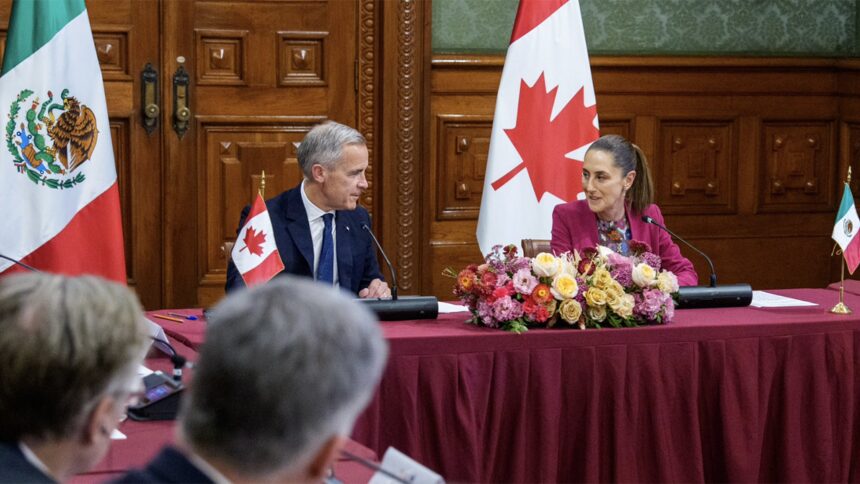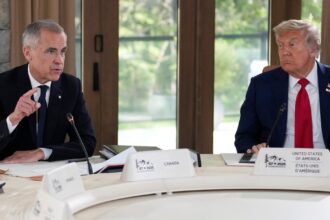In a significant development that underscores the evolving North American economic landscape, Canada and Mexico have unveiled a comprehensive bilateral action plan focused on strengthening trade relations and energy security cooperation. The initiative, announced during high-level diplomatic meetings last week, aims to counter growing protectionist tendencies while establishing more resilient supply chains across the continent.
The agreement comes at a pivotal moment for North American trade dynamics. With the United States implementing increasingly inward-looking policies, Canada and Mexico are strategically positioning themselves to preserve and enhance the integrated continental market that has developed under the USMCA framework. Mexican President Claudia Sheinbaum and Canadian Prime Minister Justin Trudeau emphasized that the partnership represents a natural evolution of their countries’ shared economic interests.
“This action plan addresses the realities of today’s global economic challenges while building on our longstanding friendship,” said Chrystia Freeland, Canada’s Deputy Prime Minister, during the announcement in Mexico City. “By coordinating our approaches to energy and trade, we create opportunities for businesses and workers in both nations while strengthening North America’s competitive position globally.”
The plan specifically targets critical mineral supply chains, renewable energy development, and transportation infrastructure improvement. Mexican officials highlighted that their country’s abundant lithium reserves could complement Canada’s expertise in clean energy technology, creating synergies that benefit both economies. The agreement includes provisions for joint investment in cross-border rail and shipping infrastructure, essential for reducing transportation bottlenecks that have plagued North American trade.
Energy security features prominently in the agreement, with both nations committing to increase grid interconnection and emergency response cooperation. This focus reflects growing concerns about climate-related disruptions and geopolitical uncertainties affecting global energy markets. The plan establishes working groups to harmonize regulations on renewable energy production and transmission, potentially creating a more unified North American energy market.
“Mexico sees tremendous potential in deepening our economic relationship with Canada,” said Marcelo Ebrard, Mexico’s Foreign Minister. “Our economies are complementary in many sectors, and this agreement provides the framework to capitalize on those natural advantages while addressing shared challenges.”
Trade experts note that the agreement appears carefully calibrated to avoid antagonizing the United States while creating meaningful bilateral progress. The plan emphasizes areas where Canadian and Mexican interests align naturally, including automotive manufacturing, agriculture, and technology services. It also establishes new consultation mechanisms for addressing trade disputes directly between Ottawa and Mexico City.
The bilateral action also creates pathways for increased labor mobility between the two countries, addressing workforce shortages in critical sectors. Canadian agricultural producers have particularly welcomed provisions that will simplify seasonal worker programs, while Mexican technology companies see opportunities to access Canada’s innovation ecosystem more seamlessly.
Business leaders from both nations have responded positively to the announcement. The Canadian Chamber of Commerce described the plan as “forward-thinking and pragmatic,” while Mexico’s Business Coordinating Council praised its potential to “create predictability in an increasingly uncertain global environment.”
Implementation begins immediately with the establishment of joint working groups focusing on specific sectors. Officials expect the first tangible results within six months, particularly in areas related to regulatory harmonization and infrastructure planning. The agreement includes review mechanisms to assess progress and adjust priorities as needed.
As North America navigates complex economic headwinds, including ongoing supply chain disruptions and technological transformation, will this Canada-Mexico partnership prove to be the foundation for a more resilient and integrated continental economy that can thrive regardless of political shifts in Washington?











